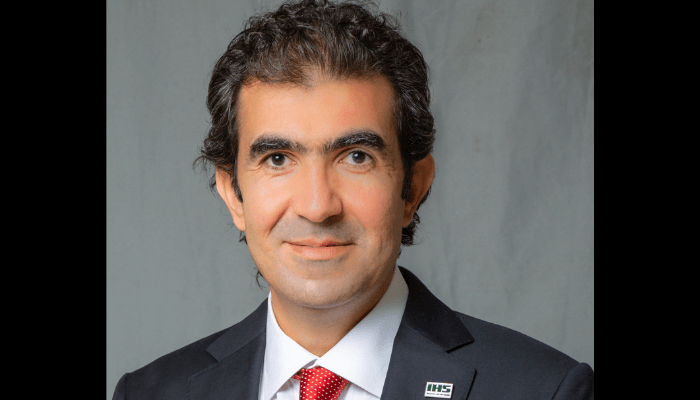Mohamad Darwish, CEO of IHS Nigeria, has called for urgent and coordinated public-private investment in digital infrastructure, innovation, and talent development, describing these as the foundation for inclusive growth and national competitiveness.
Speaking during the plenary session themed Smart Growth, Digital Leap, hosted by IHS Nigeria at the 31st Nigerian Economic Summit (NES) in Abuja, Darwish said Nigeria cannot achieve its development aspirations without placing digital technology at the heart of its economic agenda.
“We cannot successfully build a prosperous and inclusive Nigeria by 2030 without digital technology being a core driver and accelerator,” Darwish said. “This is because digital infrastructure is no longer just about connectivity, it has become the backbone of national productivity.”
While Nigeria has recorded significant progress in the last decade, especially in internet penetration, e-commerce, mobile payments, and startup activity, Darwish warned that the country still faces serious gaps that risk undermining that momentum.
Read also: IHS Nigeria, Osun State partner to transform technical education
He pointed to inadequate rural internet access, persistent power supply issues, and uneven levels of digital literacy as some of the barriers holding back full digital inclusion.
“Our country stands very tall as the most vibrant startup ecosystem in Africa and one of the elite creative communities in the world,” he noted. “But despite the progress, Nigeria still grapples with infrastructural and skill gaps.”
The session, which brought together stakeholders from government, business, and civil society, focused on how to accelerate digital adoption and reduce inequality across value chains, sectors, and geographies.
Darwish stressed that only sustained collaboration between the public and private sectors can unlock the scale of investment needed to close infrastructure gaps and scale the innovation ecosystem.
“To bridge this divide, stakeholders must invest in public-private partnerships,” he said. “Government initiatives focused on expanding broadband coverage, coupled with community-based digital skills programs, can empower more Nigerians to participate in the digital economy.”
According to Darwish, such partnerships would not only unlock productivity across key sectors but also attract new investment and position Nigeria as a future-ready economy.
He emphasized that digital infrastructure, innovation, and talent development should no longer be treated as peripheral interests, but as “core inputs and catalysts for growth.”
Darwish also outlined five key priorities for action, including identifying infrastructure and regulatory gaps, scaling broadband and rural connectivity, expanding innovation hubs across sectors like agriculture, health, and education, and building a digital skills pipeline aligned with industry needs.
Read also: IHS Nigeria, UNICEF drive digital literacy, school connectivity in Nasarawa
He expressed confidence in the summit’s ability to foster alignment among key stakeholders on how best to channel investment and policy support into these areas. “I hope that at the end of this session, we can arrive at sector-wide alignment on where and how to scale digital infrastructure investments and a strengthened consensus among government, private sector, and development partners on coordinated investments for Nigeria’s digital transformation.”
Highlighting IHS Nigeria’s contributions, Darwish noted that the company operates over 16,000 telecom towers and has laid more than 15,000km of optic fibre across the country.
He said IHS is investing in green energy to power base stations, supporting innovation hubs, and backing upskilling programmes such as the government’s 3 Million Technical Talent initiative (3MTT) and UNICEF’s Generation Unlimited (Gen U).
“For us at IHS Nigeria, we believe strongly that connectivity is a catalyst for socio-economic growth,” he said. “We pride ourselves as Nigeria’s backbone of digital possibilities, playing a critical role in expanding network infrastructure and supporting telecom operators with sustainable, energy-efficient, and secure infrastructure solutions.”
Darwish urged stakeholders to match ambition with action, stressing that smart, inclusive growth will depend on how quickly the country can scale its digital capabilities.

